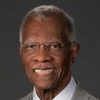- videocam On-Demand Webinar
- card_travel Class Action and Other Litigation
- schedule 90 minutes
Corporate Representative's Role and Testimony at Trial: When to Consider Appearance-Only Representatives
Scope of Questioning, Prior Testimony, Appearance v. Rule 30(b)(6) Designees, Limits on Cross-Examination
Welcome to BARBRI, the trusted global leader in legal education. Continue to access the same expert-led Strafford CLE and CPE webinars you know and value. Plus, explore professional skills courses and more.
About the Course
Introduction
This CLE webinar will discuss the role of corporate representatives at trial and strategies for counsel either representing or opposing the company. The panel will discuss selecting "appearance" only representatives and those who have also been deposed under Federal Rule 30(b)(6). The panel will review factors to consider when deciding whether to have an "appearance" representative or not, how that designation limits opposing counsel's options on cross-examination, and what risks the appearance representative faces. The program will also review Rule 32 and other applicable procedural and evidentiary rules.
Description
Parties that are entities typically have a representative present at trial: (1) to put a human face on the entity; (2) to assist counsel; and (3) to hear the testimony of the opposing witnesses since this person is exempt from the rule of sequestration.
This "appearance" corporate representative often has no or marginal knowledge and/or involvement in the events being litigated. Other times, the appearance representative may also have been deposed as a Rule 30(b)(6) representative.
When an appearance representative is called to testify at trial, it is unclear whether the witness is testifying only from personal knowledge as an appearance representative or as a 30(b)(6) representative. The answer drives the scope of examination at trial and whether prior testimony will be admissible. Opposing counsel may seek to call the representative as an adverse witness to force admissions that the witness knows nothing about critical facts.
Both sides have strategic decisions to make regarding how to treat and deal with a corporate representative at trial. Trial counsel should take steps to prepare for and deal with multiple scenarios based on what opposing counsel does. To assess these strategies, counsel should be familiar with, among other rules, Federal Rule 32.
Listen as this panel discusses strategies for dealing with the differences between the "appearance" representative and the corporate Rule 30(b)(6) representative.
Presented By

Mr. Cochran represents individuals and businesses in a wide variety of matters. He has tried jury trials, bench trials, administrative and regulatory hearings, and medical peer review hearings. He has appeared on many panels and spoken at seminars on a variety of topics, including the application of the Daubert rule and a host of topics related to white-collar criminal law and investigations.

Mr. Silverman has broad-based experience representing clients in sophisticated business disputes, litigation, and appeals for more than 30 years in state and federal courts and has consistently achieved his client’s objectives, employing sound judgment, careful analysis and aggressive determination.

Mr. Sinkfield is nationally recognized as a leading defense trial attorney for bet-the-company cases and is frequently named among the very best trial attorneys in Georgia. A founding partner of Rogers & Hardin, he handles complex litigation matters, often with sizeable monetary values, in Georgia courts as well as in other jurisdictions. Mr. Sinkfield is recognized both for his trial and appellate advocacy skills in complex business litigation, with extensive experience in securities, business torts, and director, officer and professional liability litigation.
-
This 90-minute webinar is eligible in most states for 1.5 CLE credits.
-
Live Online
On Demand
Date + Time
- event
Monday, May 22, 2023
- schedule
1:00 p.m. ET./10:00 a.m. PT
- Applicable Federal Rules of Procedure and Evidence
- Scope of questioning in discovery vs. at trial
- Use of prior testimony
- Rule of sequestration
- Role of appearance representatives at trial
- Generally
- When appearance representatives were not 30(b)(6) designees
- When appearance representatives were 30(b)(6) designees
- Limits on cross-examination
- Perils of calling adverse witnesses on direct
- Strategies for the company
- Strategies for opposing counsel
The panel will discuss these and other key issues:
- Should a corporate representative--either in an appearance or a 30(b)(6) capacity--be treated as a party versus a non-party witness to the litigation?
- Can a person designated as the corporate representative for appearance purposes only be protected from being called by the opposing side as an adverse witness in his or her capacity as a corporate representative?
- Is listing "a corporate representative of the defendant," or adopting the other party's witness list, sufficient to include the corporate representative designated for purposes of appearance at trial?
- What application does Federal Rule 32 have?
Unlimited access to premium CLE courses:
- Annual access
- Available live and on-demand
- Best for attorneys and legal professionals
Unlimited access to premium CPE courses.:
- Annual access
- Available live and on-demand
- Best for CPAs and tax professionals
Unlimited access to premium CLE, CPE, Professional Skills and Practice-Ready courses.:
- Annual access
- Available live and on-demand
- Best for legal, accounting, and tax professionals
Unlimited access to Professional Skills and Practice-Ready courses:
- Annual access
- Available on-demand
- Best for new attorneys
Related Courses
Recommended Resources

Explore the Advantages of Consistent Legal Language
- Learning & Development
- Business & Professional Skills
- Talent Development



